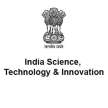A Brief History of the Indian Department of Science and Technology
The Indian department of science and technology is also known as DST, is an Indian government department that promotes newer areas of progress in the science and technology field & was started in the year 1971.
The Department of Science and Technology (DST) functions under the Ministry of Science and Technology. Established in the year 1971; this department plays an integral role in aiding the formation and implementation of new ideas in this field.
With Jitendra Singh as the minister of this department and Ashutosh Sharma as its secretary, this department focuses on helping new and approved scientific projects in India come to life by providing them with the financial aid required.
What Role Does This Department Play?
It would not be wrong to say that the DST has become rather important in the development of not only science and technology in India but the prosperity of the country as a whole.
While its main purpose is organising, promoting and coordinating technological and scientific advancements in the sub-continent, it also handles several other matters pertaining to the same.
Other than that, it also shows its support to innovators and researchers by helping them attend relevant international conferences and show their experimental works.
In addition to that, it formulates all the necessary policies related to the technology and scientific departments in India. It also handles important matters relevant to the Scientific Advisory Committee of the Cabinet (SACC).
Along with that, it helps encourage new areas of science and technology with special attention to the emerging areas. This is done through research and development in other research laboratories and institutions.
What Makes This Department So Important?
A few decades after the inauguration of the Department of Science and Technology, it joined hands with the country’s Government and Department of Biotechnology to jointly adopt an Open Access Policy.
This essentially means that it provides an open platform for all scientific organizations and developments in India dealing in scientific knowledge. This policy was made possible through public-funded research in India.
What Should You Know About The New Programme This Department Launched?
There has been news of DST recently launching a new programme by the name of ‘Interdisciplinary Cyber-Physical Systems’ or ICPS. This programme essentially focuses on aims to promote and cultivate better research and development in this evolving field.
Further mentioned here are some general guidelines that answer some queries about preparing and submitting project proposals as per this programme. Keep reading to learn more.
Who Is Allowed To Submit?
Any scientist, engineer or technologist can submit their project proposals to gather financial aid. However, they should be actively working in either an academic intuition or an R&D laboratory.
It should also be noted that these institutions should have the required facilities and infrastructure to help carry out the technological development work.
Along with that, any industry that has an R&D laboratory that is recognised by DSIR is welcome. These laboratories can either be stand-alone establishments or work in collaboration with other academic or R&D institutions.
How Is the Project Proposals Evaluated?
After the preliminary scrutiny, the accepted project proposals are then sent for another round of review. The reviewers are often chosen from peer researchers or other subject experts. However, before that step, the project investigators are said to revise their proposals if required.
Once that is done, all the proposals, along with the added comments, are sent to the Project Advisory and Monitoring Committees (PAMC) of each specific area of expertise. The PAMC consist of different subject experts and other notable researchers appointed by the DST.
They further submit their recommendations, and the same proposals are then shortlisted to be aided financially by the department.
To put it simply, funding mainly depends on the final approvals mentioned by the competent authority, the DST itself and obviously the ratings presented by the experts at PMAC. Once all the necessary documentation is available, the budget is then divided and prioritised to more promising projects.
In Conclusion
There is no denying the fact that the Department Of Science And Technology is doing leaps of notable work to amplify the interest of the country. With the information mentioned here, you too can be a part of this journey and bring your long-awaited projects to life.
About the Creator
ISTI Portal
The India Science, Technology, and Innovation Portal is a place for information on developments in science and technology, India’s scientific research activities, technology innovation in India. https://www.indiascienceandtechnology.gov.in/






Comments
There are no comments for this story
Be the first to respond and start the conversation.